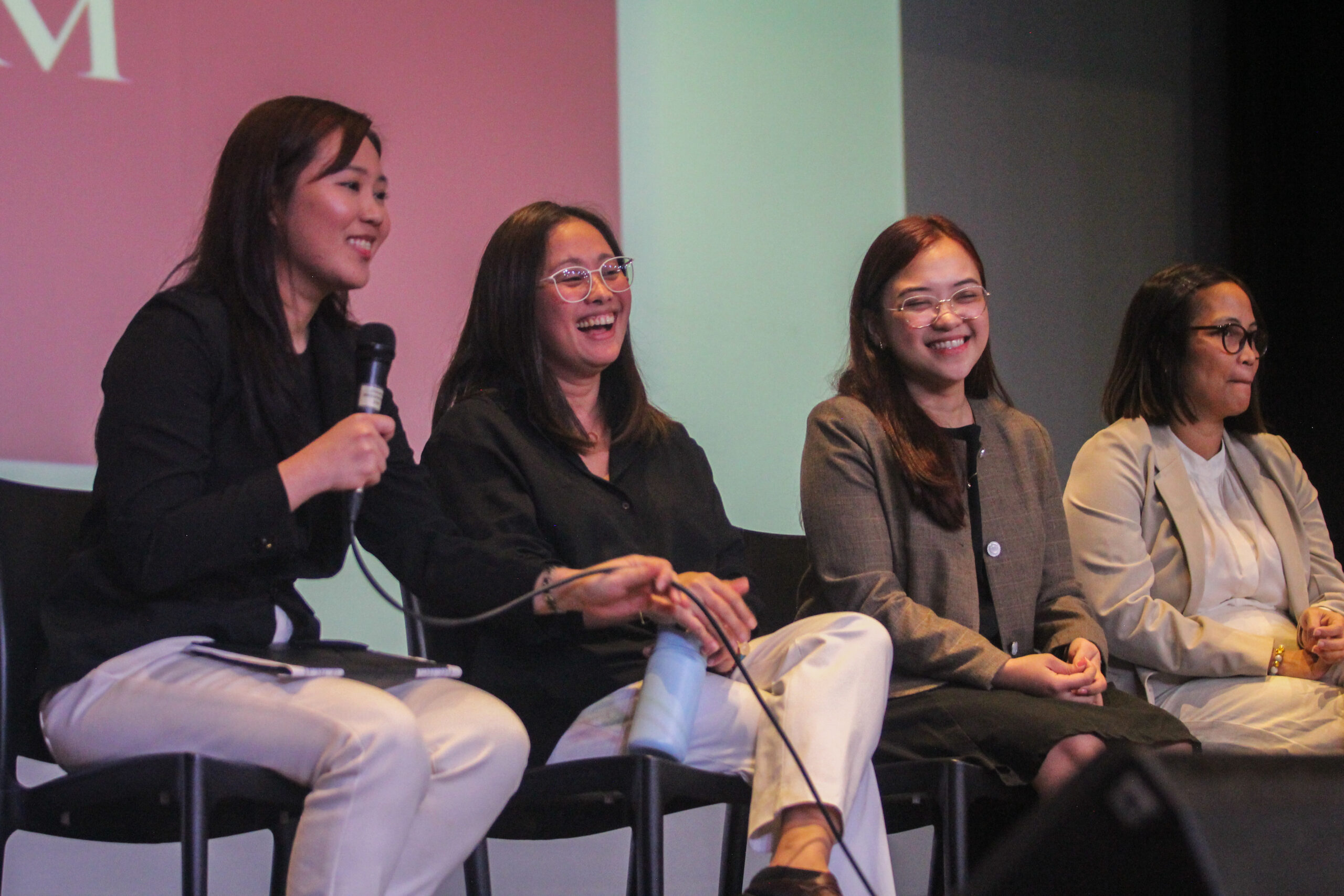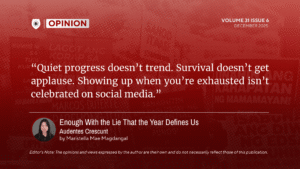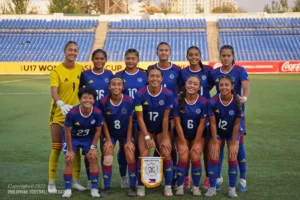Written by Johann Elijah R. Dalit | August 5, 2025
OSA’s Action in Creating a Safer Bedan Community
LAST July 30, the Office of Student Affairs (OSA) launched the “OSA Playbook Series,” a seminar to raise awareness on the forms and impacts of violence and to promote a culture of respect and empathy, empowering Bedans to take a stand against violence. The event was attended by upperclassmen and held at the Tugade Auditorium.
In her opening remarks, Dr. Precy G. Baluarte, Prefect of Activities, emphasized on the importance of the activity in creating a safer and respectful San Beda community. “Let this event be a platform for learning, reflection, and action, and may we leave today more informed, more empowered, and more committed to building a culture of safety, empathy, and responsibility,” she stated.
Mary Beth Ann Odo, a fourth-year law student, sparked the flame as the first speaker by sharing her knowledge about Republic Act No. 7610 or the “Special Protection of Children Against Abuse, Exploitation and Discrimination Act.”
Odo points out the significance of this topic as the cases of child abuse and exploitation in the Philippines are on the rise. “I have been in the firm for several years and ang dami pong child abuse cases sa Philippines ngayon,” Odo stated. She also discussed the protection of children by penalizing various forms of abuse, including physical, emotional, and sexual exploitation.
The Safe Spaces Act, or Republic Act No. 11313, was also discussed by Elvie T. Amiscosa, a third-year law student. Amiscosa stated that the purpose of the law is to protect everyone against all forms of gender based sexual harassment, whether in public spaces, workplaces, educational institutions, or even on online platforms.
She defined gender based sexual harassment as any unwanted and uninvited sexual actions, implying that consent is an essential element for the law not to take effect. Amiscosa also expressed that the Safe Spaces Act can be violated by anyone, regardless of the victim's gender or the offender's motive: “Kapag na-offend mo ang isang tao, whether joke ‘yun or hindi, you will be liable under this law,” she added.
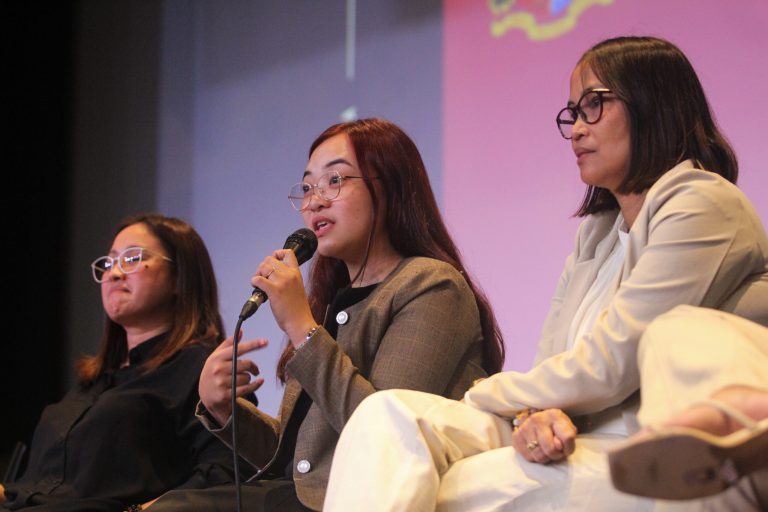
Isabel Francesca Anunciacion, an active member of the Human Rights Center, shared her insights about Republic Act No. 10627 or the “Anti-Bullying Act of 2013.”
To raise awareness about whether a person's actions are considered bullying, Anunciacion first defined bullying as the physical, verbal, social, or cyberbullying that causes mental or emotional harm to another person. “So if nakaka-hurt na kayo ng feelings, causing deterioration ng studies nung person, and ayaw na niyang pumasok, ibig sabihin may mali na sa ginagawa niyo,” she said.
Anunciacion also strongly advised that standing up to a bully involves telling them to stop, expressing how you feel, and knowing your rights as an individual, such as the action to file a case under Republic Act No. 10627. “It's important to be aware of your rights, kasi kung hindi mo alam ‘yung rights mo eh maa-abuse ka talaga,” she expressed.
“Being Digitally Aware is also Being Legally Aware,” Atty. Precious Aeryk Iñosa said in her talk about Republic Act No. 10175, or the “Cybercrime Prevention Act of 2012.” She defines various offenses and penalties, and rules for enforcement and investigations. Atty. Iñosa added that the said law protects systems, data, and communications from abuse.
The law also helps ensure our rights, especially privacy and free speech, while also holding accountability online. Atty. Iñosa ended her talk with a message that brings an impactful prevention of cyberbullying.
“I want you to remember B.U.L.L.Y. B as in Be kind online, U as in Understand privacy settings, L as in Leave toxic conversations, L as in Log evidence if needed, and Y as in You are responsible,” she recited.
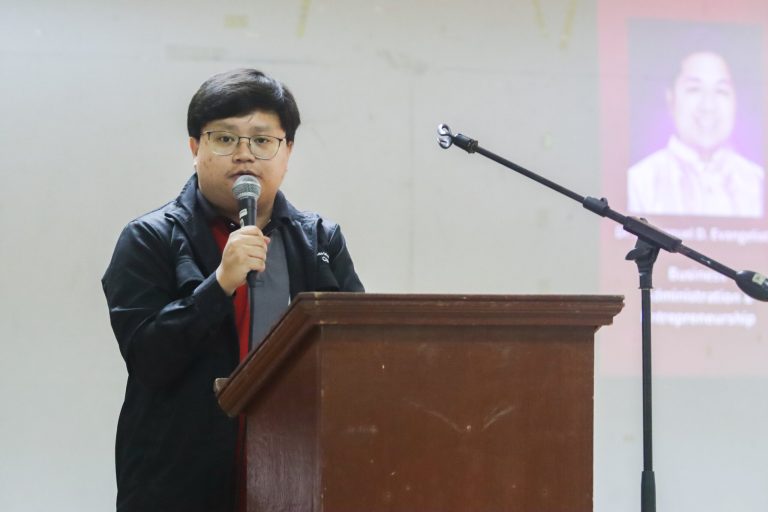
Lastly, Raechelle Angela Bulos, a fourth-year law student, discussed a long-standing issue that has haunted schools and universities, a culture of violence masked as tradition, which is hazing. Bulos defined hazing as the act of subjecting individuals to harmful, dehumanizing, and sometimes deadly rituals as part of initiation rites in her discussion of Republic Act No. 11053, also known as the “Anti-Hazing Act of 2018.”
She shared that R.A No. 11053 bans all forms of hazing, including physical, psychological suffering, harm, or injury that a person suffers. Bulos also stated that the act serves as a statement that harm in the name of tradition is no longer be tolerated and that every student has the right to dignity, safety, and respect.
She emphasized the importance of encouraging today's generation to put an end to hazing once and for all. “Let's replace the cycle of violence with a culture of respect, accountability, and true leadership," she shared. The OSA Playbook Series seminar concluded with the closing remarks of Prof. Carl Michael Dela Cruz, Dean of Student Affairs.
He expressed his gratitude to the students for their participation and engagement, saying that their presence demonstrated a strong commitment to personal development. Dean Dela Cruz assured the students that the Office of Student Affairs will firmly support this stand, “Kami sa OSA gagawa tayo ng mga supplementary activities to enrich you further and mas mainform tayo sa mga batas na ito,” he expressed.
Another OSA Playbook Series focusing on Drug Awareness and Gender Sensitivity also took place last July 29 for the freshmen, held at the Manny Reyes Hall.
Volume 31 | Issue 2

